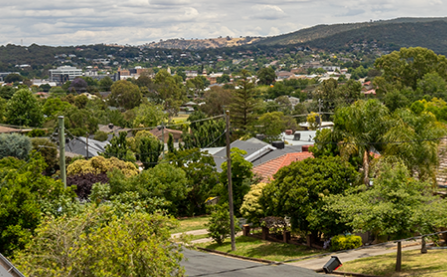The Three Outcomes At Auction
By Paul Kounnas
At an auction there are typically three possible outcomes on the day.
- Great competitive bidding that goes above the reserve and the property is successfully sold.
- There is some bidding, but the reserve is not reached, and the vendor then has a decision to make.
- Nothing – no bids, the property is passed in.
With the first and third outcomes the results are clear cut. The second outcome is the more likely one that plays out at most auctions and the most critical one for you financially. Before we look at the best way to deal with the second scenario, let’s take a quick look at the other two scenarios first.
With the first scenario, yes, the property is sold at a good price, but is it the best price? Maybe it is or maybe it’s not. If the final two bidders had a similar budget, then yes it should sell for the best price, but if the losing bidder’s budget was substantially less than the winning bidder’s budget then the bidding will stop at the second bidder’s limit which is well short of the winning bidder’s maximum price that they were willing to pay. So yes, it sold for a good price but not for the highest price the winning bidder could have paid. Money was left on the table.
With the third outcome where there are no bids and the property is passed in, the property ends up going on the market for sale at an agreed price. The property’s reputation however is now damaged, and its value is compromised because many buyers view properties that fail at auction as damaged goods.
As often is the case with failed auctions, the property is highly unlikely to sell for a good price because it now has a damning digital footprint.
These failed auction properties will either be taken off the market altogether with the vendor having to pay for an expensive failed advertising campaign or they sell at a discounted price. Neither is an outcome you were willing to accept when you first agreed to go to auction, nor probably the price the agent promised you at the time of engagement either.
Now let’s see what happens when there is some bidding, but it stops short of the reserve price – the second scenario:
Vendors allow agents to advertise the property for a low price on the promise that it will fuel buyer competition, but it doesn’t always go to plan. An auction that stops well below the reserve price in front of spectators is the surest way to destroy the value of your property.
When the bidding stops below the reserve price, the auctioneer will halt proceedings while instructions are sought from the vendor. Agents will often pressure the owners to drop the reserve to ‘meet the market’. Some owners can see through this sales tactic, and others succumb to the pressure on the day.
At an auction there are sometimes bidders who will hold back until the reserve price has been reached. If the auction has stalled, agents will remind you of this and they will encourage you to drop the reserve price to ‘stimulate the bidding’ and draw out any reluctant bidder. Agreeing to this tactic legally puts the property on the market at a price the vendor would have never dreamed of selling before the campaign started.
It is a massive gamble to drop the reserve price in the hope of stimulating the bidding.
It is an all or nothing tactic from a vendor’s perspective. Because if there are no other bids the property will then sell at the reduced price, a price that is below your reserve, a price the vendor would not normally agree to sell at. This would be a disappointing result for the vendor, but the agent gets a result and gets paid. This gets documented as another successful auction result in the auction reports.
If you sign up for an auction and you are imagining a big crowd of buyers fiercely bidding for your home, that is your fantasy, not the agent’s. Your agent will have a different motive behind convincing you to go to auction.
Many sellers continue to put the sale of their major asset through the riskiest sale process available. Their advertising money is at risk and more importantly achieving the best price is at risk.
Here is a little secret a real estate industry bent on public auctions tends to brush under the carpet:
The number of properties selling by auction as opposed to private sale is under 20% of all sales nationally. So why are auctions so publicly prevalent? Because the media who benefit from upfront advertising and marketing will continue to promote what lines their pockets.
If you want to find out how to get the highest price each buyer is willing to pay for your property, without risking any advertising money, ask us about our Smart Sale process. It is the best method when there are multiple buyers, and the only effective method of sale when there is only one buyer.



